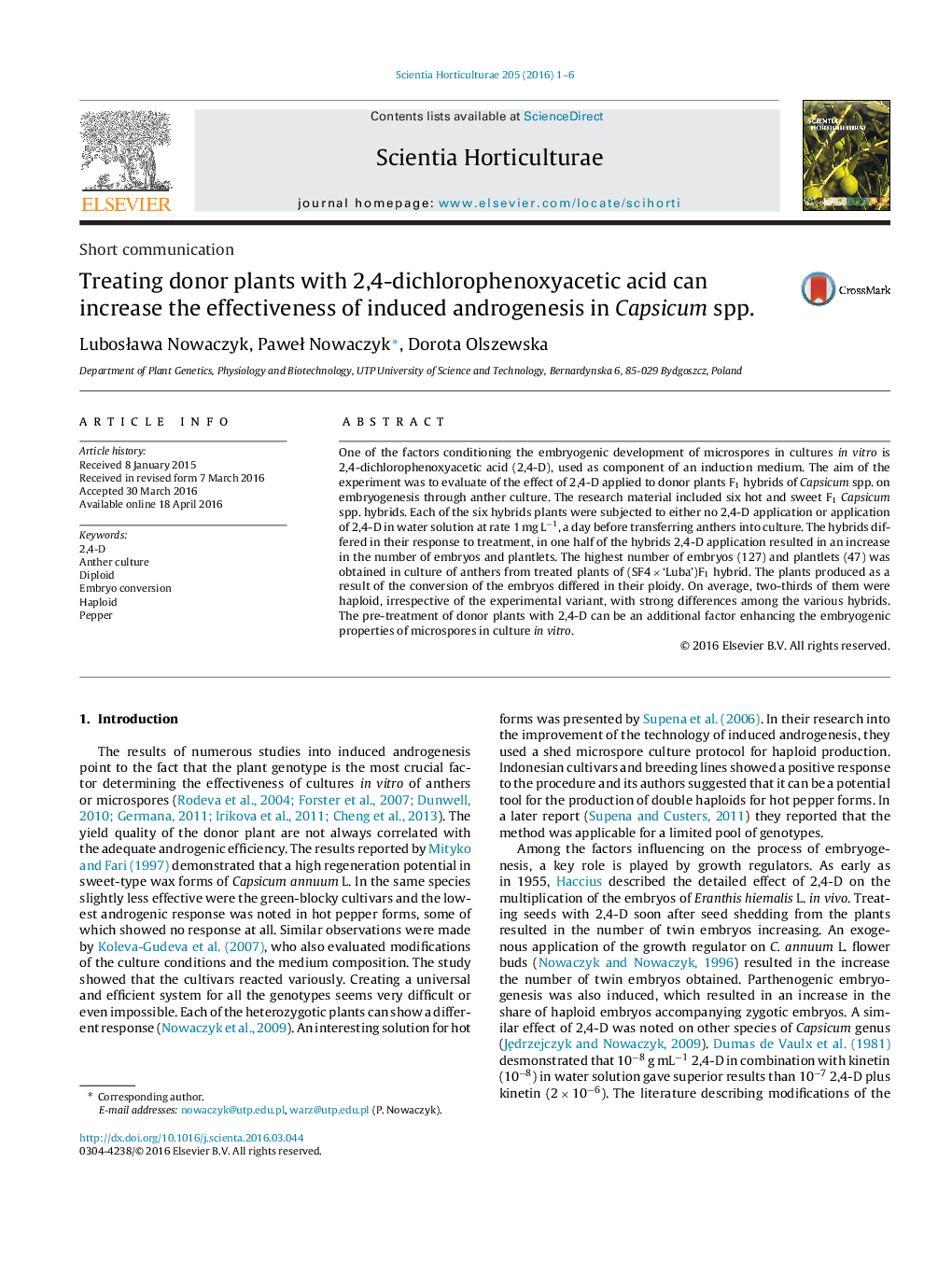| Article ID | Journal | Published Year | Pages | File Type |
|---|---|---|---|---|
| 4566029 | Scientia Horticulturae | 2016 | 6 Pages |
•The advantageous impact of in vivo 2,4D applied depends on Capsicum spp. genotype.•An average portion of diploids in population of regenerants was about 30%.•Donor plant treatment with 2,4D can be a method for increase of androgenic response.
One of the factors conditioning the embryogenic development of microspores in cultures in vitro is 2,4-dichlorophenoxyacetic acid (2,4-D), used as component of an induction medium. The aim of the experiment was to evaluate of the effect of 2,4-D applied to donor plants F1 hybrids of Capsicum spp. on embryogenesis through anther culture. The research material included six hot and sweet F1Capsicum spp. hybrids. Each of the six hybrids plants were subjected to either no 2,4-D application or application of 2,4-D in water solution at rate 1 mg L−1, a day before transferring anthers into culture. The hybrids differed in their response to treatment, in one half of the hybrids 2,4-D application resulted in an increase in the number of embryos and plantlets. The highest number of embryos (127) and plantlets (47) was obtained in culture of anthers from treated plants of (SF4 × ‘Luba’)F1 hybrid. The plants produced as a result of the conversion of the embryos differed in their ploidy. On average, two-thirds of them were haploid, irrespective of the experimental variant, with strong differences among the various hybrids. The pre-treatment of donor plants with 2,4-D can be an additional factor enhancing the embryogenic properties of microspores in culture in vitro.
